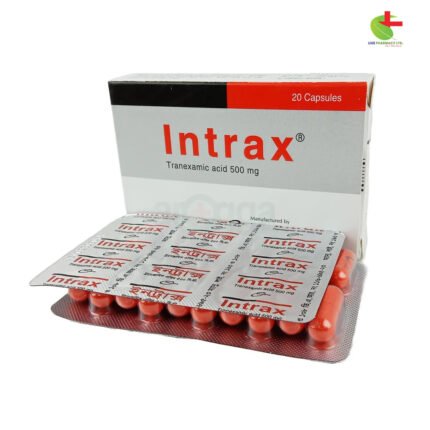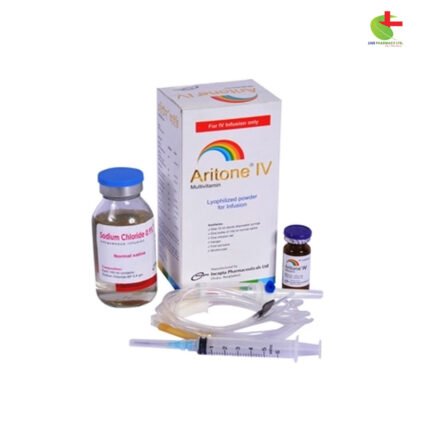Palbocent 125
400.00৳ Strip
- Palbocent is a kinase inhibitor for hormone receptor-positive, HER2-negative advanced or metastatic breast cancer.
- Used in combination with aromatase inhibitors or fulvestrant to enhance treatment efficacy.
- Inhibits CDK 4 and 6, which are essential for cell proliferation.
- Common side effects include neutropenia and fatigue.
- Always consult a healthcare professional before use.
 Brand
Brand
|
Incepta Pharmaceuticals Ltd |
|---|---|
 Generics
Generics
|
Palbociclib |
 Type
Type
|
Capsule |
Indications
Palbocent is a kinase inhibitor approved for the treatment of hormone receptor-positive (HR+) and human epidermal growth factor receptor 2-negative (HER2-) advanced or metastatic breast cancer. It is indicated in combination with:
- An aromatase inhibitor as the initial endocrine therapy in postmenopausal women.
- Fulvestrant for women experiencing disease progression after endocrine treatment.
Always consult a registered healthcare professional before using any medication.
Pharmacology
Palbocent works as an inhibitor of Cyclin-dependent kinases (CDK) 4 and 6, which are essential for cellular proliferation. By blocking the transition of cells from the G1 phase to the S phase of the cell cycle, Palbocent reduces cellular growth in estrogen receptor-positive breast cancer cell lines. When combined with antiestrogens, it leads to decreased phosphorylation of retinoblastoma (RB) protein, reducing E2F expression and promoting cell growth arrest. Studies indicate that this combination not only enhances cell senescence but also maintains the effects for up to six days post-treatment, resulting in greater tumor growth inhibition compared to individual treatments.
Dosage & Administration
The recommended dosage of Palbocent is one 125 mg capsule taken orally once daily for 21 consecutive days, followed by a 7-day treatment break, making a complete cycle of 28 days. Palbocent should be taken with food, and patients are encouraged to take it at the same time daily. For men receiving combination therapy with Palbocent and an aromatase inhibitor, consider LHRH agonist treatment per current clinical guidelines.
Recommended Dose Modifications for Adverse Reactions:
- Starting Dose: 125 mg/day
- First Dose Reduction: 100 mg/day
- Second Dose Reduction: 75 mg/day
If further dose reduction below 75 mg/day is necessary, discontinue use or follow physician’s advice.
Use in Children: Palbocent is not recommended for pediatric use.
Always consult a registered healthcare professional before using any medication.
Interactions
Palbocent is primarily metabolized by CYP3A and sulfotransferase enzyme SULT2A1, acting as a time-dependent inhibitor of CYP3A.
Agents that may increase Palbocent plasma concentrations:
Coadministration with strong CYP3A inhibitors (e.g., Itraconazole) can significantly increase Palbocent exposure. Avoid using strong CYP3A inhibitors and grapefruit juice during treatment.
Agents that may decrease Palbocent plasma concentrations:
Coadministration with strong CYP3A inducers (e.g., Rifampin) can markedly reduce Palbocent levels. Avoid strong inducers during treatment.
Drugs affected by Palbocent:
Palbocent may increase plasma levels of certain CYP3A substrates, potentially requiring dose adjustments for sensitive medications with narrow therapeutic indices.
Side Effects
Common side effects of Palbocent include:
- Decreased white blood cells
- Neutropenia
- Infections
- Increased liver enzymes (AST, ALT)
- Fatigue
- Nausea
- Hair loss
- Mouth and lip inflammation
- Diarrhea
- Anemia
- Rash
- Weakness
- Vomiting
- Dry skin
- Fever
Pregnancy & Lactation
Palbocent can cause fetal harm. Pregnant women should be informed of potential risks. The incidence of major birth defects and miscarriage in clinically recognized pregnancies is between 2%-4% and 15%-20%, respectively.
Precautions & Warnings
- Neutropenia: Commonly reported, monitor complete blood counts prior to therapy and throughout treatment. Consider dose modifications for severe neutropenia.
- Interstitial Lung Disease (ILD)/Pneumonitis: Monitor for pulmonary symptoms. Discontinue use for severe cases.
- Embryo-Fetal Toxicity: Palbocent poses risks during pregnancy; effective contraception is advised during treatment and for at least three weeks post-treatment.
Overdose Effects
No known antidote exists for Palbocent. Overdose management should consist of general supportive care.
Therapeutic Class
- Protein kinase inhibitor
Storage Conditions
Store below 30°C, away from light and moisture. Keep out of reach of children.













Reviews
There are no reviews yet.